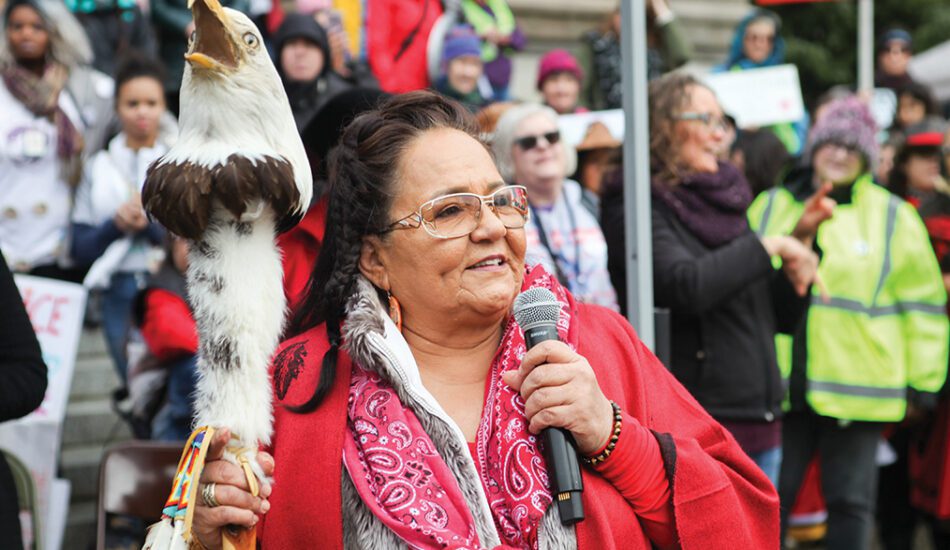by Puyallup Tribal News Staff
Women’s Marches across the nation were led by the drums and songs of Indigenous matriarchs, young women, girls and their families. Many carried signs reminding the world that “we are still here.” Elder women, young women, two-spirits people, girls and their fathers, brothers, husbands, uncles, grandfathers and allies were in tow, walking with their family members to help uplift their voices in the demand for justice. Their cries were for the safe return and honor of their missing relatives.
Lead by the Puyallup Canoe Family, Tribal members and leaders marched in Olympia, Wash., on Saturday, Jan. 19 and gathered again for the Missing and Murdered Indigenous Women’s (MMIW) March in Seattle on Jan. 20. The march in Seattle was a gathering of the urban Native community, dressed in red, marching with drums from Occidental Square to Seattle City Hall.
The weekend’s marches were empowered by the gathering and healing voices of Indigenous women leaders, sharing stories and songs of survivance. Puyallup Culture Director and Tribal elder Connie McCloud opened the event in Seattle with an offering to the people of the Coast Salish lands, sharing words that gave reason to our gathering and action:
“Our people have lived along these waters for thousands of years. The changes that have come to these lands actually have been very recent. Andwith these changes has brought people to our lands that didn’t understand who we are, didn’t understand our values, our relationship to our children, our relationship to one another, our relationships to this land, the water and to our sacred mountains. We are all connected. We are spiritually connected to this land and to each other. Today we want to recognize those people that have been lost to us and that we still search for. Their memory is always with us; we feed them, we acknowledge them, we talk to them all of the time. We build memorials, we offer tobacco, we offer flags, that they’re not forgotten. We gather today in this manner, to continue to move forward the message that we’re still here and that we remember.”
According to Urban Indian Health Institute’s 2018 report, 5,712 Indigenous women and girls (MMIWG) were reported missing or murdered in 2016 in the United States. Forty-five of those cases were in Seattle, the highest instance of MMIWG out of the 71 cities surveyed.
We march to remember. We march for our sisters and relatives.
Photo: Puyallup Tribal elder Nancy Shippentower speaks at the MMIW March in Olympia. Photo by Tribal member Jennifer Squally.





